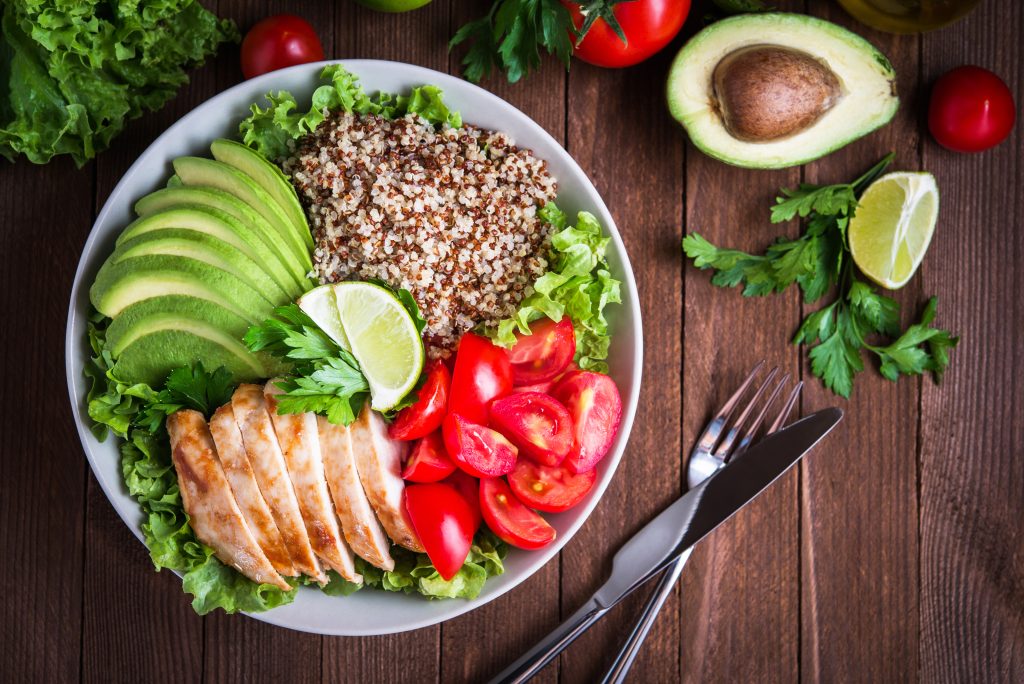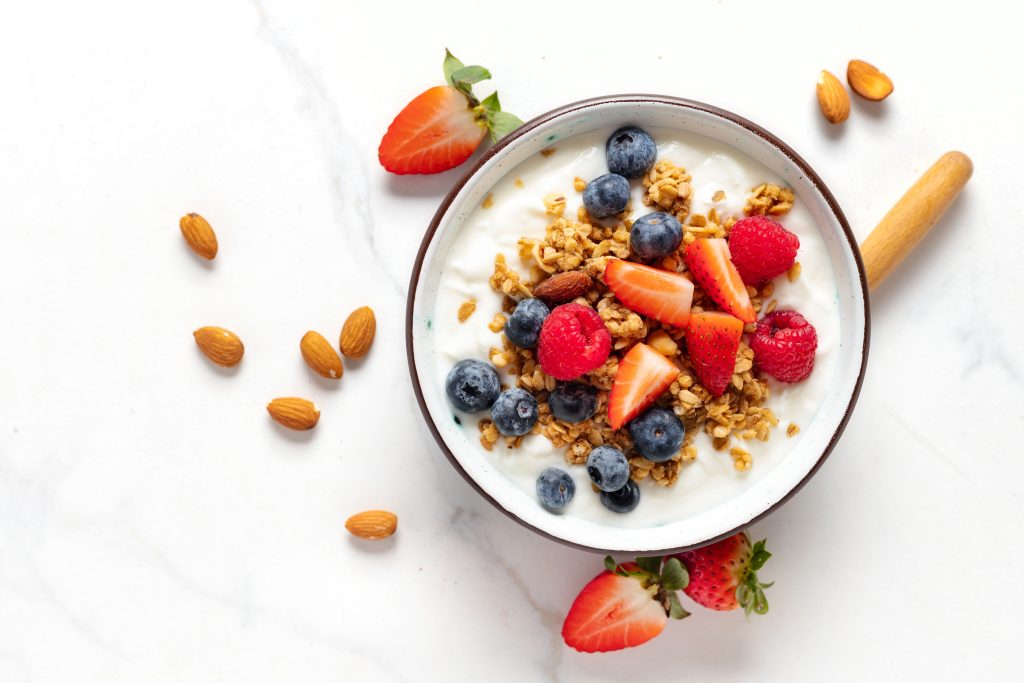
Evidence-Based Strategies for Hunger Management
Picture this: you’ve just finished dinner, but not even an hour later, you’re back in the kitchen, scanning the shelves for a snack. Sound familiar? Hunger is more than just an empty stomach rumbling—it’s a biological process influenced by hormones, stress, sleep, and even the types of foods we eat.
This short guide offers real advice to help you tame your appetite naturally. Without going too deeply into the science, it will help you understand how appetite works and how that can help you manage it effectively. Science-backed strategies like eating high-protein meals combined with lifestyle changes such as getting better sleep can arm you with practical ways to keep hunger in check.
Understanding Appetite: The Basics
The Science of Appetite
- Ghrelin: Think of ghrelin as your body’s hunger messenger. When your stomach is empty, ghrelin levels spike, telling your brain that it’s time to eat.
- Leptin: Released by fat cells, leptin tells your brain that you’re full and helps you regulate food intake.
- Insulin: Known for managing blood sugar, insulin also influences how your body processes hunger signals and energy.


How these hormones influence your hunger
But here’s where it gets interesting—these hormones don’t work in isolation. They interact with each other and respond to external factors like stress, sleep, and the types of foods you eat. Research has shown that factors like stress, poor sleep, and diet can significantly influence these hormones. For example, medical studies published back in 2004 found that participants who experienced sleep restriction had a 28% increase in ghrelin levels and an 18% decrease in leptin levels, leading to increased hunger and appetite.
What’s more, scientists have discovered that appetite isn’t just physical—it’s psychological too. Cravings, emotionals, and even visual cues like seeing a delicious dessert can influence how hungry you feel. It’s why that midnight chocolate cake often feels irresistible even when you’re technically full.
By understanding how these internal mechanisms work, you can start to make small changes in the way you do things to help you stay in control of your appetite. Think of it as learning how to work with your body’s natural signals rather than fighting against them.
Common Triggers for Increased Appetite
- Stress and Emotional eating: Stress increases levels of a chemical called cortisol which can lead to cravings for high calorie, sugary foods.
- Poor sleep hygiene: Lack of sleep can raise ghrelin levels and lower leptin, increasing hunger.
- Highly processed foods: Foods high in sugar and low in nutrients can disrupt appetite-regulating hormones, leading to over-eating.

How to Decrease Appetite Naturally

1. Focus on Appetite-Reducing Foods
- High-Protein Foods: Protein-rich meals can promote satiety and reduce hunger. Options like eggs, lean meats, tofu, and lentils are excellent choices.
- Fibre-Rich Foods: Vegetables, whole grains, and legumes slow digestion, keeping you full for longer.
- Healthy Fats: Avocado, nuts, seeds, and olive oil help regulate hunger hormones and provide sustained energy.
A review in the Journal of Obesity and Metabolic Syndrome found that high-protein diets can increase how full people feel, which may help to reduce a person’s overall calorie intake. What’s more, digesting protein burns more calories (diet-induced thermogenesis) compared to carbs or fats, while helping to maintain muscle mass. This keeps your metabolism running at a higher rate as you progress on your weight loss journey.
2. Stay Hydrated
Thirst is often mistaken for hunger. Drinking water before meals can help you feel fuller and reduce the urge to overeat. A study in Obesity found that consuming 500 mL of water before meals reduced calorie intake in participants.


3. Practise Mindful Eating
Mindful eating involves paying close attention to your food—its flavours, textures, and how it makes you feel. A systematic review published in Obesity Reviews found that mindfulness-based interventions effectively reduce binge eating and improve appetite control.
Hunger Suppressants
Appetite Suppressants on Prescription


Natural Suppressants
- Green tea extract: Known for boosting metabolism, green tea can also help curb hunger. Plus, it’s loaded with antioxidants that benefit overall health.
- Glucomannan: This plant-based fibre swells in your stomach, creating a sense of fullness and helping you avoid unnecessary snacking.
- Fenugreek: This plant-based option is rich in fibre and has been shown to assist with appetite control.
Lifestyle Tips for Managing Hunger
- Prioritise Sleep: Aim for 7–9 hours of quality sleep per night to keep hunger hormones balanced.
- Manage Stress: Techniques like yoga, meditation, or regular exercise can lower stress-related cravings.
- Plan Balanced Meals: Build meals with protein, fibre, and healthy fats to keep you satisfied.


Expert Support for Appetite and Weight Management
My Weight Loss Clinic is here to help those seeking evidence-based, personalised weight loss solutions. A team of Nurse Practitioners work with clients to create sustainable plans for appetite control and overall health. A three-phase approach includes:
- Personalised Planning: Tailored programs based on individual needs.
- Regular Check-Ins: Ongoing support through telehealth consultations to monitor progress.
- Long-Term Maintenance: Education and tools to help clients maintain healthy habits for life.
Frequently Asked Questions about Appetite and Weight Loss
Further Reading:
Brief Communication: Sleep Curtailment in Healthy Young Men is Associated with Decreased Leptin Levels, Elevated Ghrelin Levels and Increased Hunger and Appetite published in Annals of Internal Medicine Vol 141/11 by Karine Spiegel, PhD, Esra Tasali MD, Plamen Penev MD PhD, Eve Van Cauter PhD, 2004 https://www.acpjournals.org/doi/10.7326/0003-4819-141-11-200412070-00008
Clinical Evidence and Mechanisms of High-Protein Diet-Induced Weight Loss published in Journal of Obesity and Metabolic Syndrome, 29(3):166-173, 2020 by Jaecheol Moon and Gwanpyo Koh
https://www.jomes.org/journal/view.html?doi=10.7570/jomes20028
My Weight Loss Clinic
We specialise in education and empowerment. We want this to be the last weight loss program you do.
"*" indicates required fields